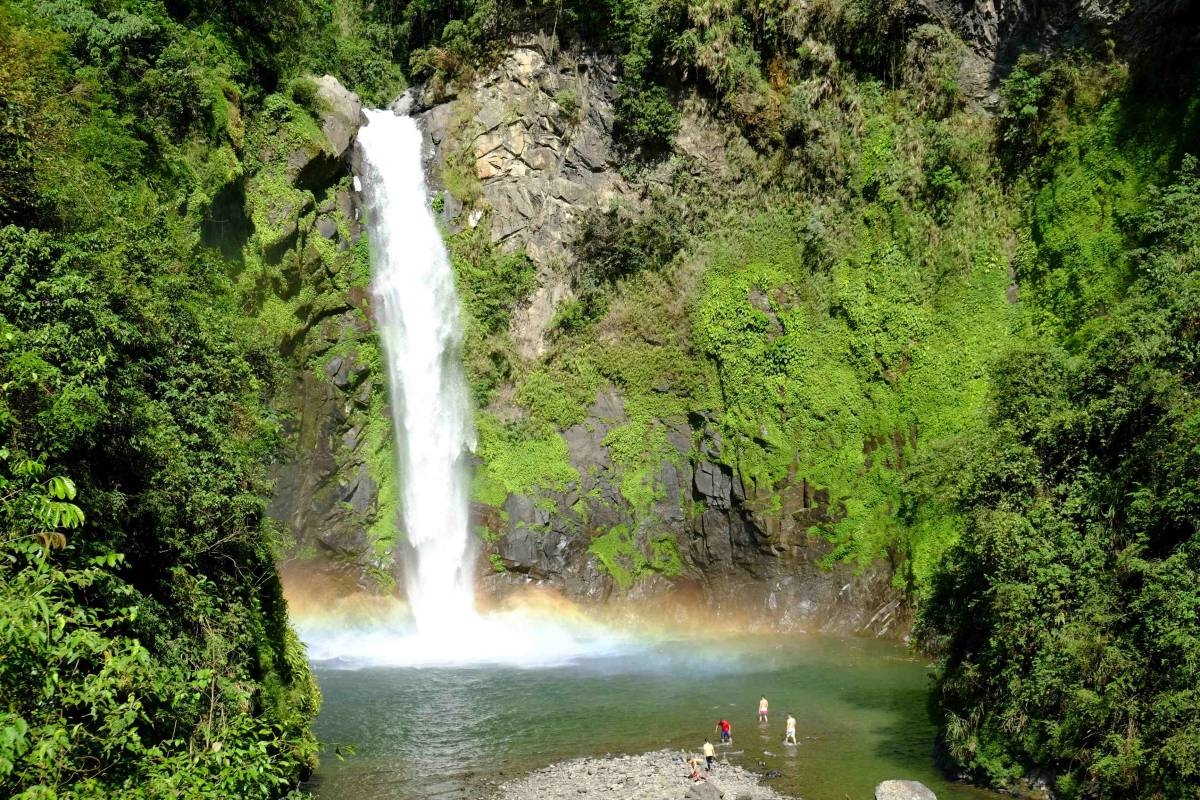
BATAD RICE TERRACES
IT was the breathtaking view of the rice terraces from my bedroom window that captivated me during my first solo backpacking adventure to Batad. I remember how busy that year was, finishing a project that required me to work even on weekends to meet the launch date. When the product was finally launched a few weeks before Christmas, I looked for air, bus, or ferry tickets to take me somewhere I could finally relax, but they were all sold out. The only available option was a bus ticket to Banaue, leaving on the evening of Christmas Day.
I bought the last ticket, boarded the evening bus to Banaue, and only upon arrival did I decide to go to Batad. "Can you take me to Batad, and pick me up two days later?" I asked the tricycle driver upon reaching Banaue. "Yes, sir, but only up to Batad junction at the main road. You have to trek three to four hours to reach Batad proper," was his reply. He agreed on a pick-up time, drove me for about an hour, then dropped me off at the Batad junction.
I started my solo climb immediately and reached the saddle after two hours, then descended to the village in another two hours. I reached Simon's guesthouse by noon. Simon, who owns the guesthouse, was quite surprised to see a guest a day after Christmas. "What do you plan to do?" Simon asked. "Relax," I replied. For the next two days, Simon took me to some of the hidden spots of Batad. In between, we talked about Batad and its people, their culture, and traditions. It was the best two days I ever had, and the view from the bedroom window made me fall in love with the place even more.
I have returned to Batad many times. It is a great place to get disconnected (actually, you have no choice because of limited mobile phone signal). Every day you wake up in Batad, you only decide which trail to explore, which local food to try, or simply stay in bed and stare through your window at the magnificent terraces.
Understanding Batad
Batad is a barangay of Banaue and is famous for its amphitheater-like rice terraces, believed to be more than 2,000 years old. They were carved out of mountains by the sturdy Ifugaos using ancient engineering skill and ingenuity. This "stairway to heaven" is irrigated by mountain springs and streams that keep the soil fertile. The Ifugaos have a unique culture that revolves around rice from planting to harvest to consumption.
The Batad Rice Terraces were included in 1995 on the World Conservation List of the United Nations Educational, Scientific and Cultural Organization due to their "outstanding example of an evolved, living cultural landscape that can be traced as far back as two millennia ago in the precolonial Philippines."
Getting in
Nowadays, you need not hike for four hours to reach Batad. The road going to the village is now paved and can be climbed by car in 30 minutes from the Batad junction. To get to Batad junction, drive for about 8 hours via the North Luzon Expressway, Subic-Clark-Tarlac Expressway, Tarlac-Pangasinan-La Union Expressway exit from Pura, take the road to San Jose, then Dalton Pass, and enter the Cordillera via Bagabag to reach Banaue (total 340 kilometers). From Banaue, drive to Batad junction for about 30 minutes. There's a parking space (for a fee) near the village, and from there, it's a 15-minute trek to Batad proper.
Alternatively, there are Ohayami Tours and Coda Lines buses that offer overnight trips to Banaue. Travel time is 9 to 10 hours. From Banaue, hire a tricycle to Batad, then do the 15-minute trek to reach the village.
Exploring Batad
The most popular activity in Batad is trekking along the terraces, hiking to Awa View Deck to get an unobstructed view of the whole rice terraces, and going down to Tappiya Falls to swim in its cold mountain water. This usually takes a full day and requires a guide. There are also other trails that can be explored leading to Bangaan, Kinakin, Cambulo, and even Mount Amuyao.
A guide is also necessary if you wish to visit the old Batad village to see traditional Ifugao houses, observe traditional weaving, or watch how rice wine or tapuy is made.
There are over a dozen guesthouses in Batad offering basic accommodations, some of them in traditional Ifugao houses. They also offer basic meals of pinikpikan, adobo, and yes, pizza with local vegetables. No night in Batad is complete without trying the locally brewed coffee and rice wine.
For me, I always stay at Simon's, my home in the mountains, and always in the same room I got the first time, so that I can look out the same window and see the rice terraces that made me fall in love with Batad.
2024-07-01T17:15:58Z dg43tfdfdgfd